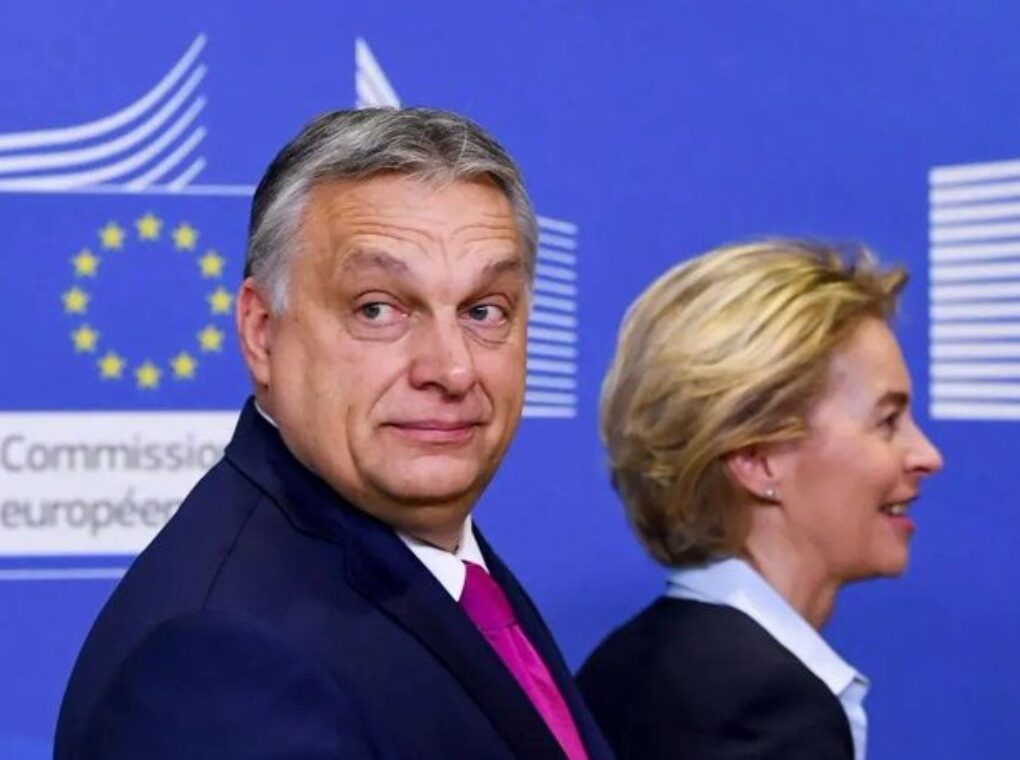In a move that has stunned diplomats across Europe, former U.S. President Donald Trump and Russian President Vladimir Putin are reportedly preparing for a face-to-face meeting in Budapest — their first since the outbreak of the Ukraine war.
The host of this unprecedented summit will be Hungarian Prime Minister Viktor Orbán, who has long been dismissed by the European establishment as an authoritarian outlier.
For Brussels, Berlin, and Paris, this announcement has landed like a political earthquake — a moment that upends years of carefully crafted isolation of both Putin and Orbán.
Orbán: The EU’s “Outcast” Becomes Global Host
For years, the European Union has portrayed Viktor Orbán as the problem child of Europe. His government has been accused of being “pro-Russian,” “illiberal,” and “undemocratic.” Billions in EU funds were frozen as punishment for his refusal to align with Brussels on migration, media control, and Ukraine policy.
Yet, the same man once mocked and marginalized is now set to host the most consequential diplomatic meeting of the decade — a summit between Trump and Putin that no other EU leader would dare arrange.
Orbán’s critics in Brussels see him as a disruptor. However, in Budapest, many view him as a visionary — a leader unafraid to defy global orthodoxy and advocate for peace in an era of perpetual conflict.
Budapest: The New Diplomatic Capital
The symbolism of Budapest as the summit venue cannot be overstated. Putin’s first visit to the European Union since 2022 won’t be to the halls of Brussels, the palaces of Paris, or the chancellery in Berlin — but to Hungary’s capital, a city that has carved out its own independent foreign policy.
For Trump, Budapest offers “neutral ground” — a NATO member state, but one that has consistently opposed escalating the Ukraine war. For Putin, it’s an opportunity to re-enter the European stage through a friendly and pragmatic leader.
Hungary has already branded the event as a victory for dialogue. State media has described it as “Budapest 2025” — a nod to historic summits like Helsinki 1975, where East and West briefly bridged their divide.
Orbán’s Vision: Dialogue Over Division
Prime Minister Orbán welcomed the idea of the Trump–Putin meeting, calling it “great news for the peace-loving people of the world.” His position has remained consistent throughout the Ukraine war: no number of sanctions, weapons, or rhetoric can bring peace — only negotiation can.
While most EU states have doubled down on isolating Russia, Hungary has kept channels of communication open. Orbán’s government continues to advocate for a ceasefire and peace talks, defying Brussels’ hawkish tone.
This independent stance, once ridiculed, is now paying off — as the world’s most powerful leaders choose Budapest as the stage for diplomacy.
Brussels in Panic Mode
Inside the EU establishment, the reaction has been one of fury and disbelief. Officials in Brussels accuse Orbán of “undermining European unity” and “handing legitimacy” to Putin and Trump at a time when Western solidarity is under strain.
But beneath the outrage lies fear — fear that the Budapest summit might mark the beginning of a new geopolitical axis: a coalition of sovereigntist, peace-first leaders willing to challenge the dominance of Western liberal globalism.
For the European elite, this meeting represents a nightmare scenario — one where power and influence shift away from the traditional strongholds of Western Europe.
A Blow to the Old Order
The implications of the Trump–Putin summit extend far beyond Hungary. For Trump, it’s a platform to reassert his global statesmanship ahead of the 2026 U.S. elections. For Putin, it’s a symbolic victory — proof that Russia is not diplomatically isolated.
And for Orbán, it’s nothing short of vindication. After years of being ostracized, he now hosts the leaders of two global powers, commanding the world’s attention.
Budapest has suddenly become a diplomatic capital — not because of its size or wealth, but because of its independence and courage to challenge the mainstream.
The Rise of a Multipolar Europe
The upcoming summit highlights a broader transformation in global politics. The monopoly once held by Washington, Brussels, and Berlin is weakening. Medium powers like Hungary are stepping into the vacuum, shaping events through independent diplomacy rather than ideological conformity.
The world is moving toward multipolarity — and Orbán, long mocked as an outlier, is becoming one of its architects.
From Isolation to Influence
The Trump–Putin summit in Budapest is more than just a meeting — it’s a message. It signals that diplomacy is no longer the exclusive domain of the global elite. It shows that even a small nation, when guided by conviction and independence, can host history.
For Brussels, it’s humiliation.
For Orbán, it’s vindication.
And for the rest of the world, it’s a reminder that peace can sometimes come from the most unexpected places.
